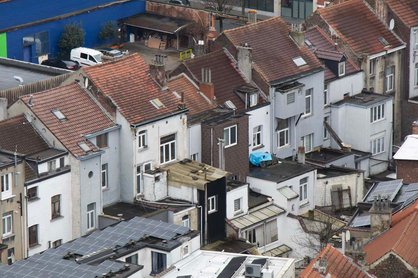
Antoine HORENBEEK
Investing in rental property can be risky. Landlords have a legal obligation to ensure that the property is in good condition. This involves checking key documents and the condition of the property.
Make sure all paperwork is complete and valid. Check every document to ensure legal compliance.
A title deed is essential to prove that the seller is the owner of the property. It must be clear and detailed. This document specifies the address, lot boundaries and rights associated with ownership.
Check that there are no disputes or restrictions such as servitudes or mortgages.
Ask for a recent copy of this document before making any purchase. Compare the information with that recorded in the land register to avoid surprises. A missing or inconsistent title can complicate future rentals or resales.
To guarantee a compliant rental investment, a certificate of conformity is essential. This document certifies that electrical and gas installations comply with safety standards.
In Belgium, it is mandatory for all rental properties, especially in regions like Brussels. A non-compliant electrical installation can lead to fire hazards or accidents.
The owner must obtain this certificate before renting out the property. An approved professional carries out an inspection and issues the document if everything is in order. Without this precious document, the property could be deemed uninhabitable.
It is therefore crucial to check that this certificate is included in the rental file. This protects both the lessor and the lessee.
Carefully inspect the home for any visible problems. Check that all installations comply with current regulations.
Make sure your home meets safety standards, such as the installation of a smoke detector.
Check the condition of your electrical and heating systems. These are essential to avoid accidents and ensure a safe home.
Check the property's health. Walls, floors and ceilings should be free of moisture and mold.
Access to drinking water and a sanitary system in good condition are also important criteria for a decent rental.
Glazed surfaces must also be large enough for living areas, as defined in the regulations.

Antoine HORENBEEK
The PEB certificate is essential for any rental property. It indicates the property's energy performance. A poor rating can reduce its attractiveness to tenants. Check that the diagnosis is up to date, as legislation changes regularly.
In Belgium, this document is mandatory for all rented properties. An energy-efficient property limits costs and attracts serious tenants.
Renovation may be necessary to meet standards. Insulating walls or replacing windows improves the home's efficiency. Such work also increases the value of the property investment.
Meeting these requirements reduces legal risks and guarantees stable rental income.
On a similar subject:
Landlords: standards for renting an apartment in Belgium
Check that property division complies with local regulations. Make sure that each lot is clearly defined and registered with the land registry.
Verification of cadastral lots is an important step for any real estate investor. It guarantees that the property is legally compliant and correctly registered.
A detailed check of cadastral lots helps to identify the correct use of each space, which is essential to avoid any regulatory conflicts.
Make sure that each lot complies with its intended use. A residential lot cannot be used as commercial premises without authorization. Check the condominium bylaws, which detail the uses authorized for each part of the building.
Misuse can lead to sanctions or legal disputes. You should also check the clauses of the rental contract to ensure compliance with legal provisions and avoid disputes with tenants.
Find out about local regulations before you rent. Some laws may restrict your plans or impose strict conditions.
Planning regulations dictate what you can build or modify on a plot of land. They ensure that your investment complies with local planning regulations. Consult the regional and communal codes to check which areas can be built on, what height restrictions apply and what materials must be used.
Non-compliant work can result in penalties or substantial adjustment costs. Each commune may have its own specificities, so be sure to analyze them carefully before taking any action.
Certain zones prohibit specific developments, such as the abusive division of a dwelling. This has a direct impact on habitability and rental yield. Such a situation can be qualified as an urban planning infringement, which exposes the owner to administrative sanctions, or even a rental ban until the situation is regularized.
You should also check the rules governing change of use, especially for tourist rentals. Failure to comply could render your project illegal and have a lasting impact on rental profitability.
Some cities impose strict rules on tourist rentals. These restrictions are often aimed at preserving the supply of accommodation for permanent residents.
Highly frequented tourist areas may also require specific authorization or a change of use for rented properties.
Property owners should check the local town planning guide. This document may define limitations on real estate use, including short-term rentals.
Failure to comply may result in substantial financial penalties. Make sure you're in compliance to avoid any administrative or legal problems.

Inspect the property to ensure that it is decent and meets safety, health and maintenance standards. Also check the technical installations and draw up a statement of compliance.
Calculate the ratio between rent received and property management costs, such as repairs, maintenance or real estate agency fees. Also take into account rent indexation and taxes.
A well-defined mandate guarantees efficient management. It includes the term of the lease, the property manager's obligations and the services offered, such as monitoring repairs or managing unpaid bills.
Entrust the management of your property to an estate agent or specialized real estate agency. They can keep the property in good condition, manage existing tenancies and meet legal obligations.
Make sure that the local market is favorable, that the property meets all legal standards, and that you choose reliable tenants to limit the risk of unpaid rent or legal disputes.
Author : CORNIL Olivier
Contact UBEX today for a free consultation!
Don't let regulatory changes take you by surprise. Anticipate and act with UBEXyour partner in real estate regulation.
Contact Ubex
AddressesUbex
Avenue Louise 523 B1050 Brussels
Chaussée de Marche 482 B5101 Namur
Rue Bois Gotha 98 B4000 Liège
Rue de Bart Haut 6 B6790 Aubange
Beekstraat 6 B9030 Gent
Copyright © SIZE+ 2026. All rights reserved.